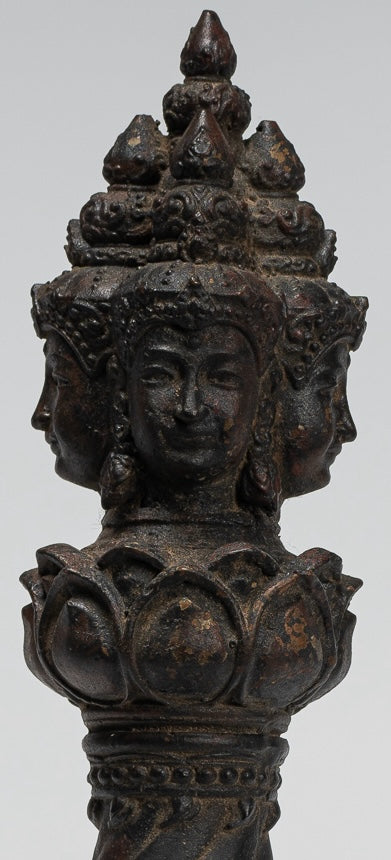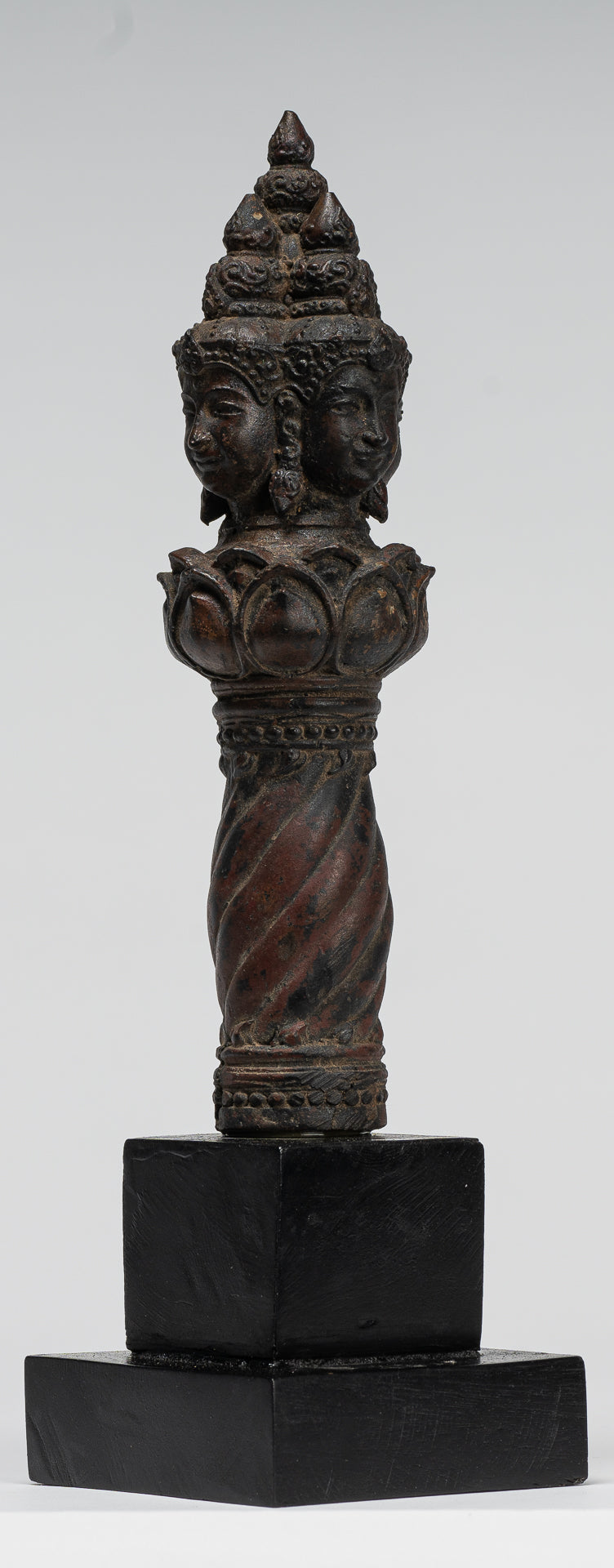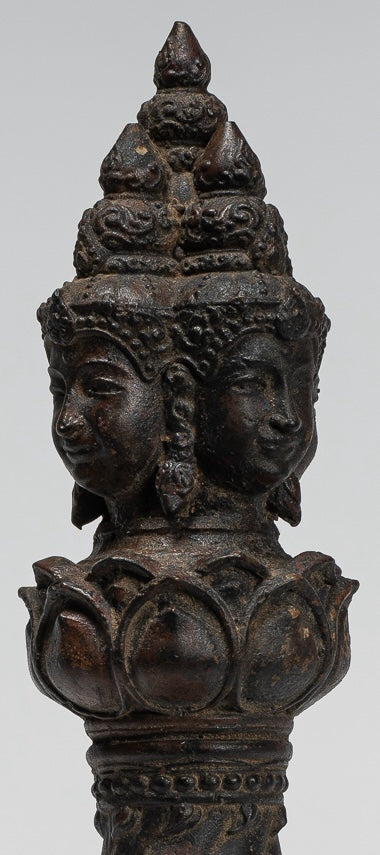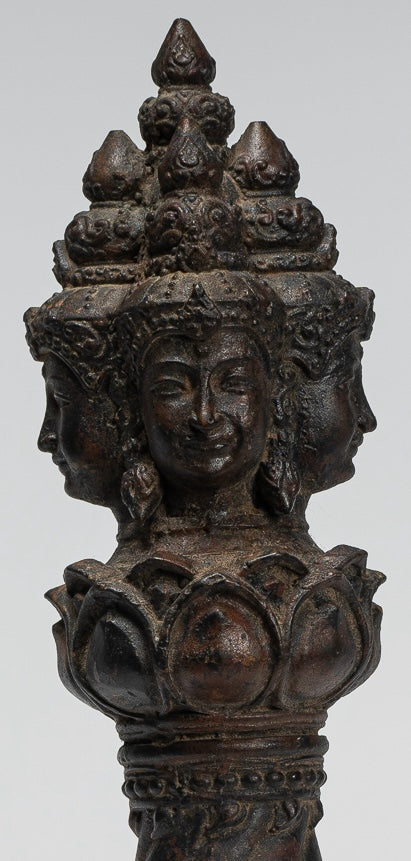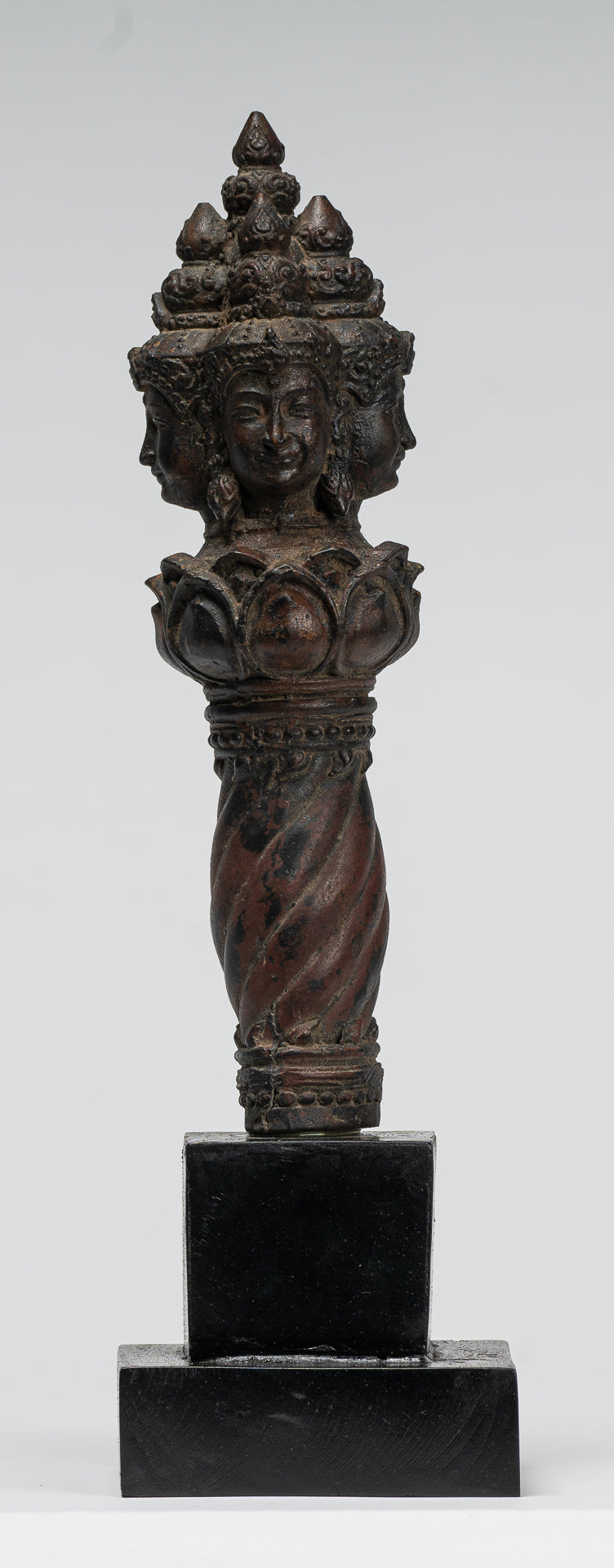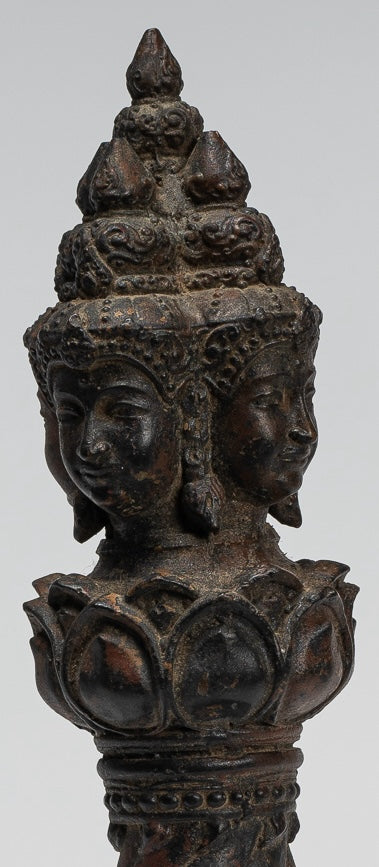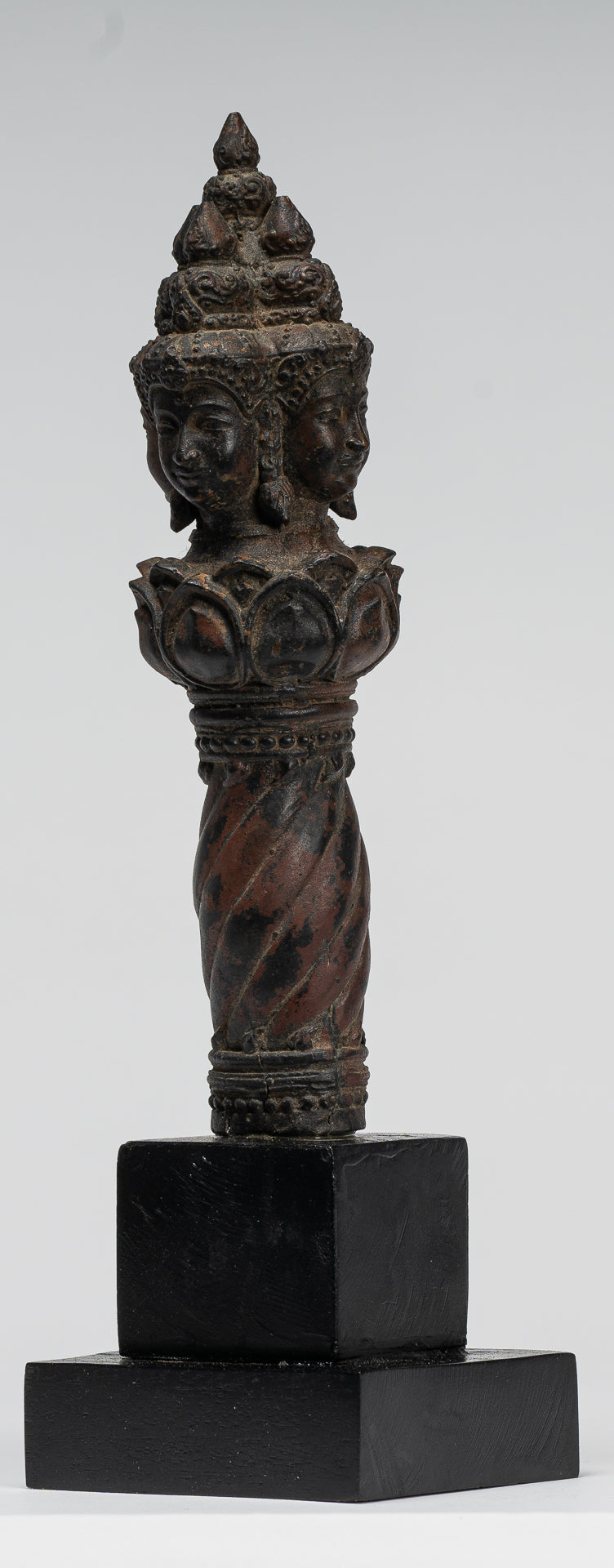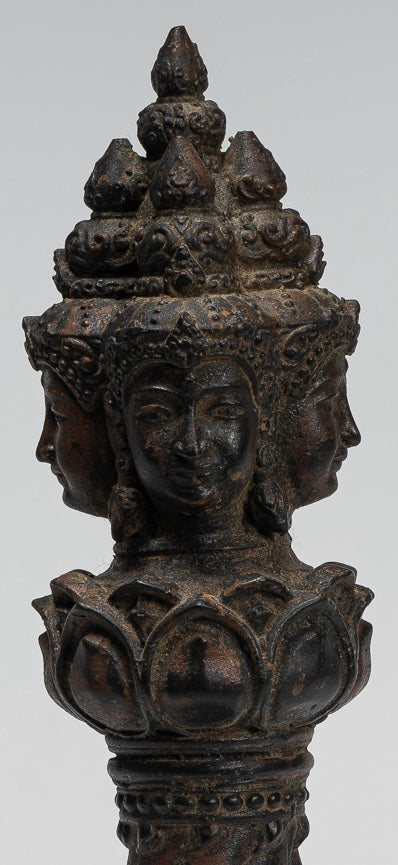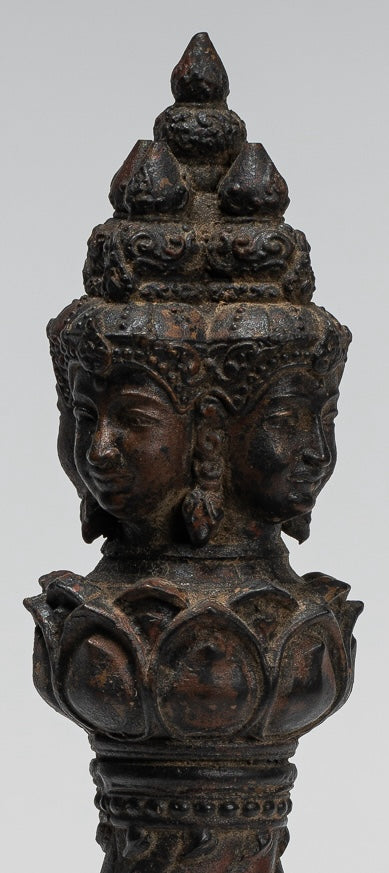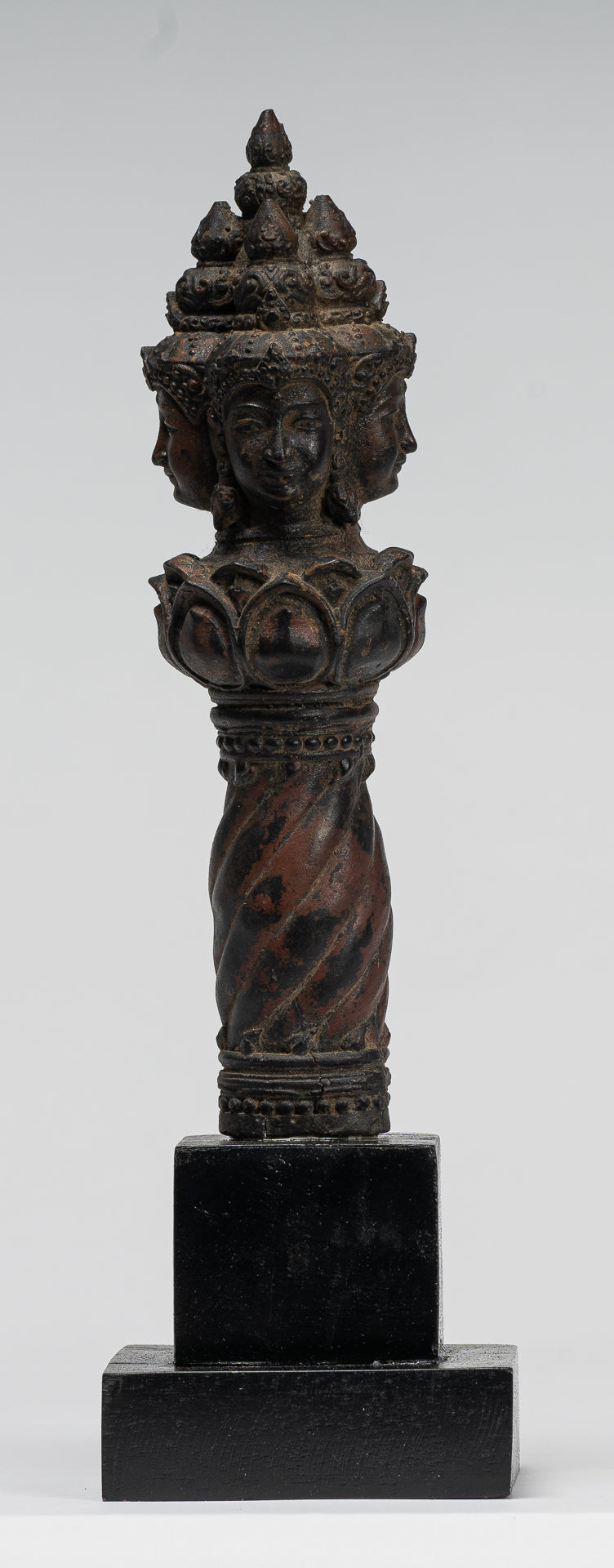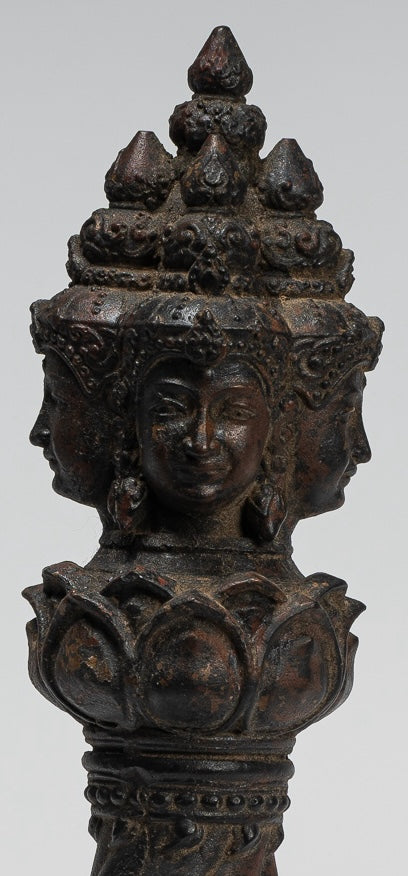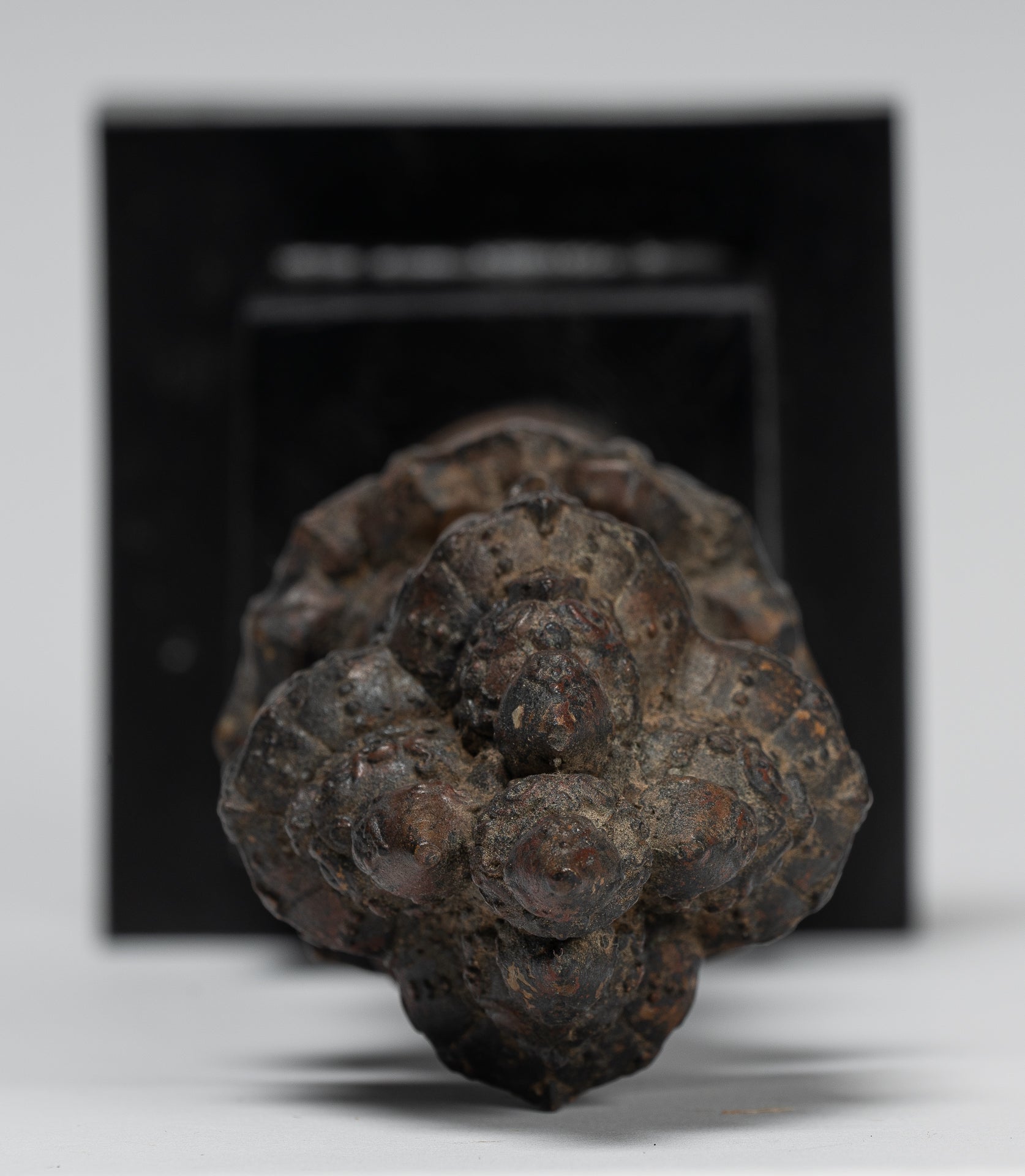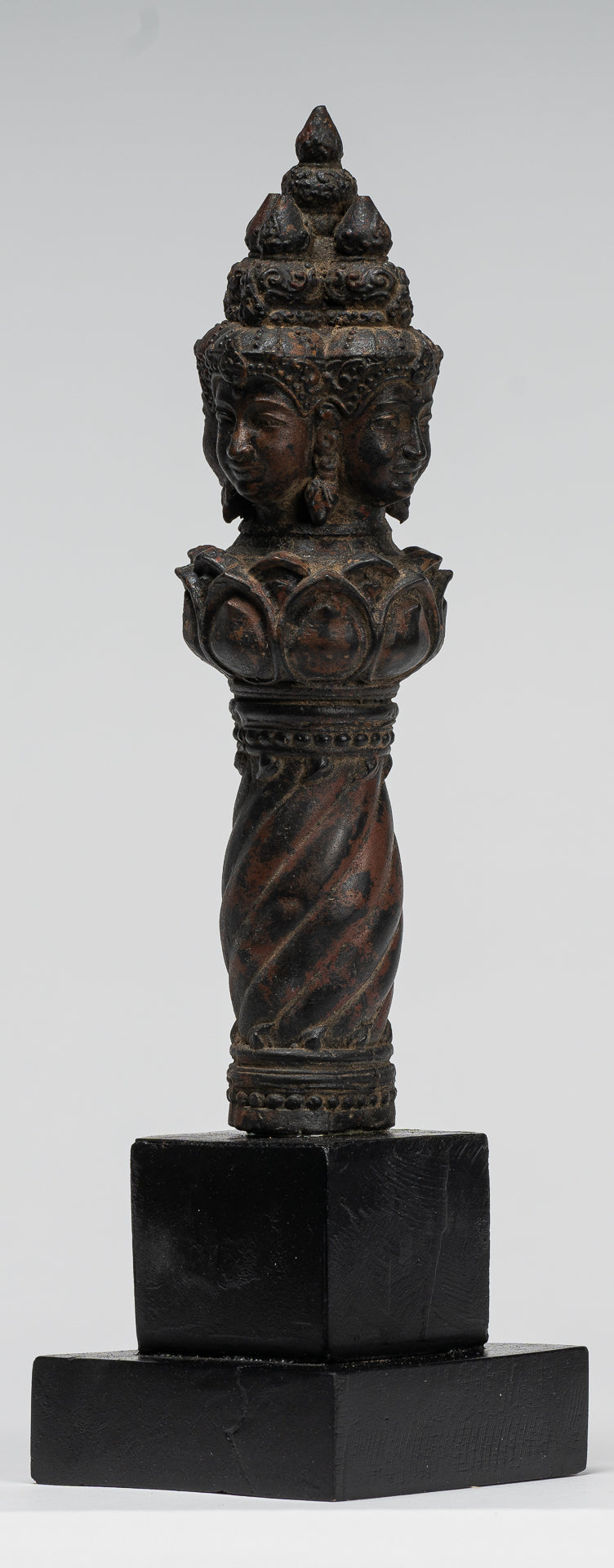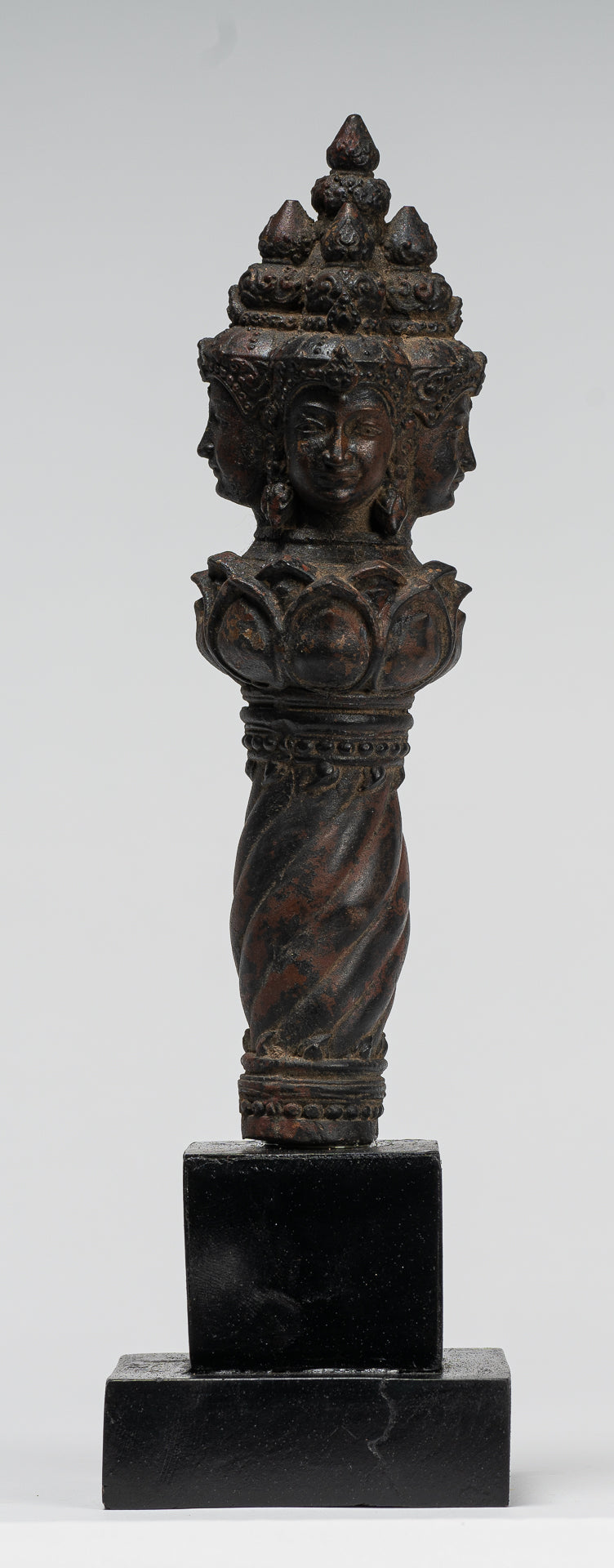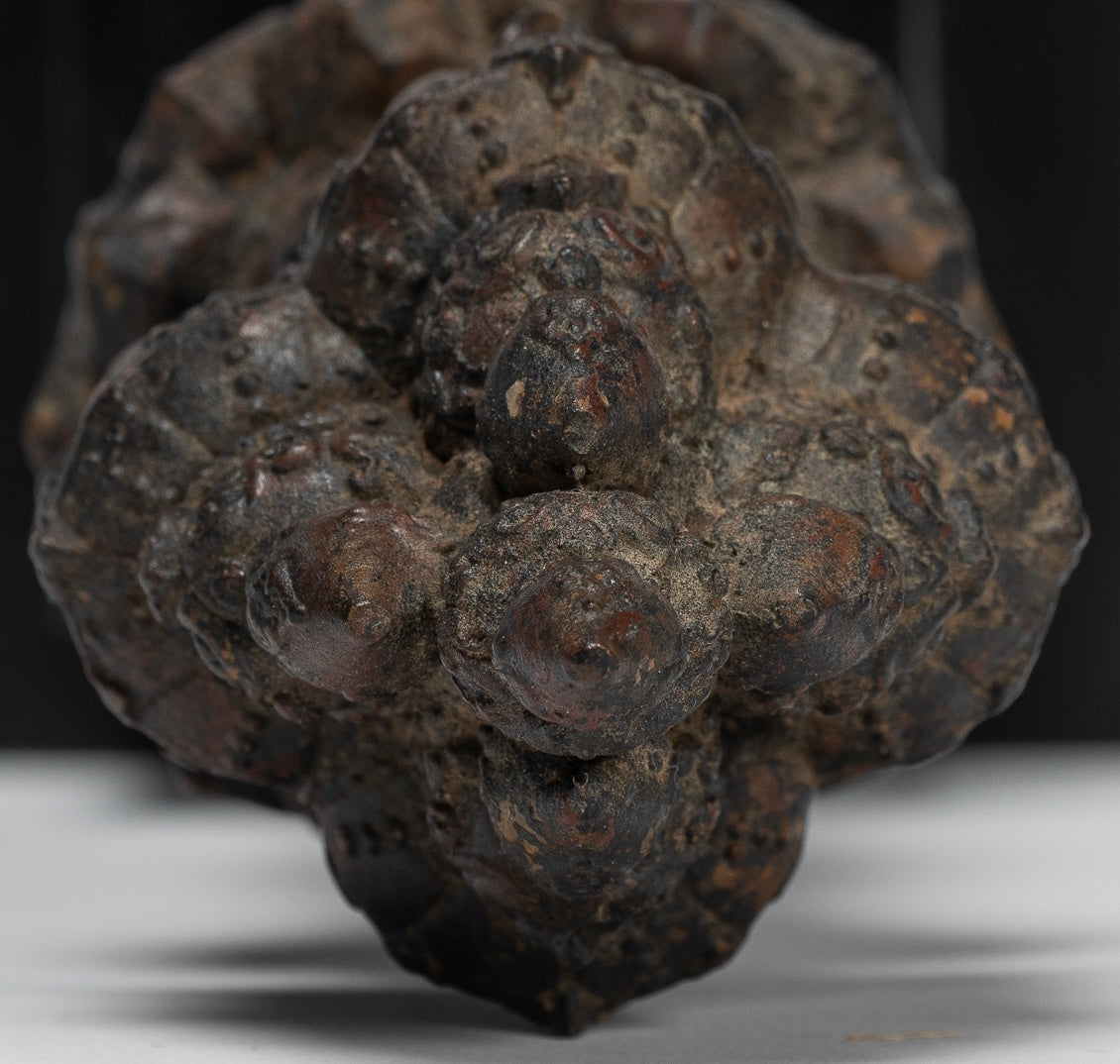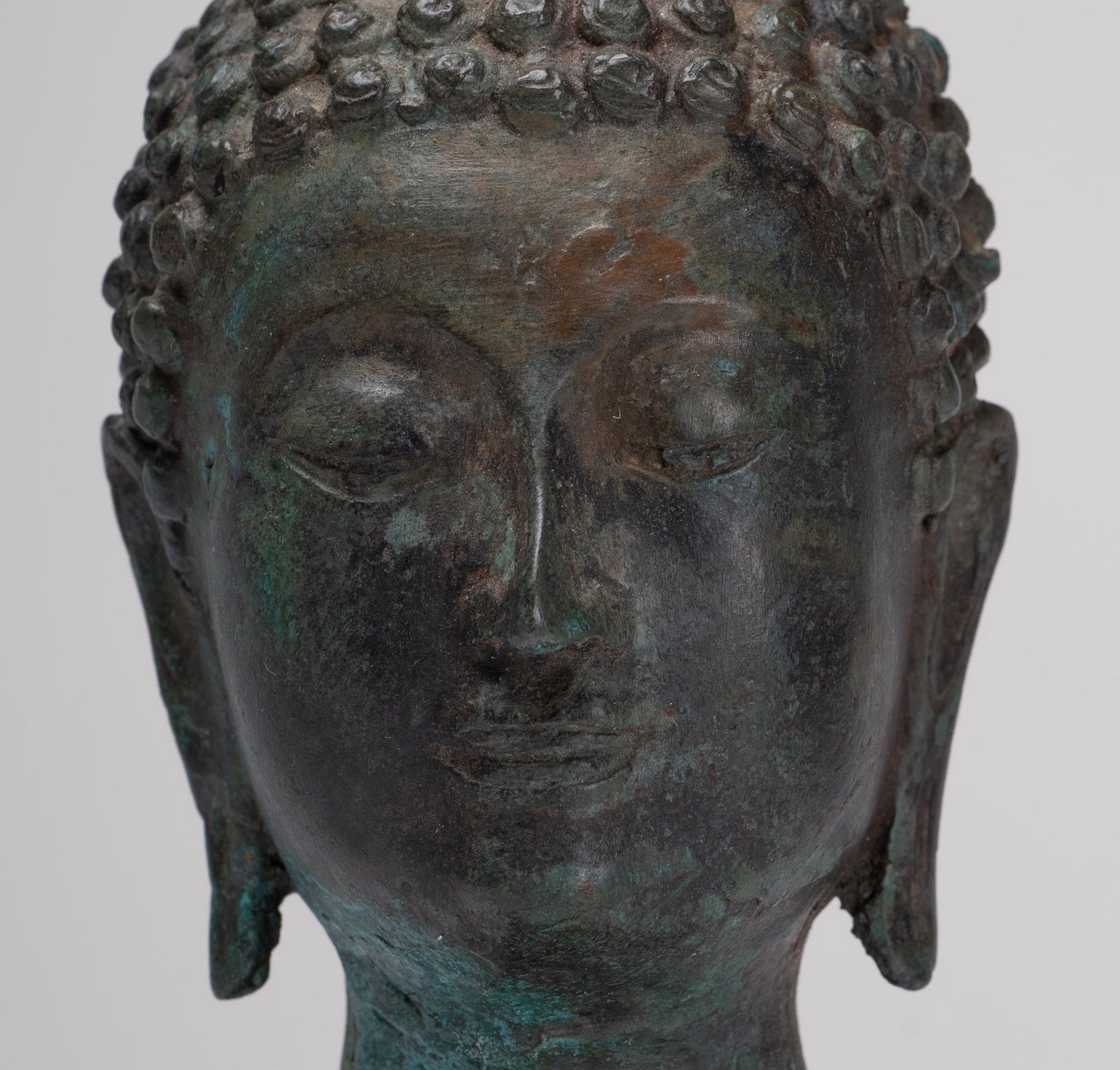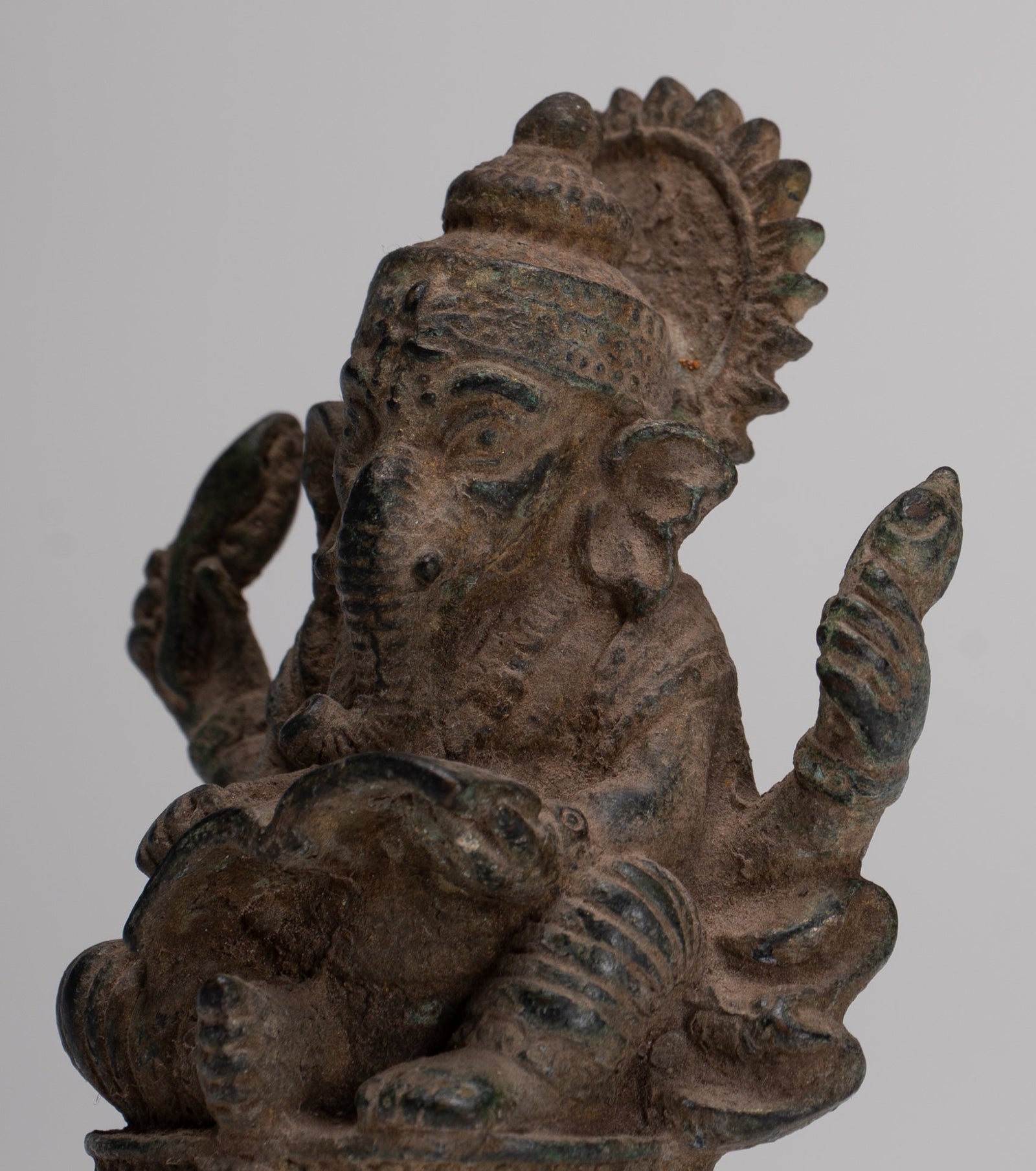-
Vajrapāṇi Statue - Antique Khmer Style Vajra or Thunderbolt Vajrapāṇi Statue - 28cm/11"
Measures (Height) 28cm/11"
An antique Khmer style bronze Vajra or Thunderbolt depicting Vajrapāṇi, one of the principal bodhisattvas in Mahayana and Vajrayana Buddhism.
In the pantheon of Buddhist deities, Vajrapāṇi stands out as a powerful and enigmatic figure. Known as the "Holder of the Thunderbolt," Vajrapāṇi is a bodhisattva who embodies the power of the Buddha and serves as a protector of the Dharma.
His imagery and symbolism are deeply rooted in both Hindu and Buddhist traditions, making him a unique and compelling figure in the spiritual landscape of Asia.
Vajrapāṇi's origins can be traced back to early Buddhist texts and iconography, where he is depicted as a fierce guardian of the Buddha and the Dharma. His name, derived from Sanskrit, means "Thunderbolt in Hand" or "Holder of the Vajra," indicating his association with the powerful thunderbolt weapon. This association links him to the Hindu god Indra, who wields the vajra as his primary weapon.
Vajrapāṇi's role evolved over time, and he became one of the principal bodhisattvas in Mahayana and Vajrayana Buddhism. He is often mentioned alongside Avalokiteśvara (the bodhisattva of compassion) and Mañjuśrī (the bodhisattva of wisdom), forming a trinity that represents the essential qualities of the Buddha.
Here four faces of Vajrapāṇi are depicted on the Vajra. On his forehead he has a third eye or urna symbolizing the ability of Vajrapāṇi to see past our mundane universe of suffering.
In contemporary Buddhist practice, Vajrapāṇi remains a vital figure. His symbolism resonates with practitioners seeking protection and strength in their spiritual journey. Rituals and prayers invoking Vajrapāṇi's power are common in many Buddhist traditions, emphasizing his enduring role as a guardian and protector.
Furthermore, Vajrapāṇi's imagery and attributes continue to inspire modern interpretations in art and literature. His archetype as a fierce protector offers a powerful metaphor for overcoming personal and societal challenges, encouraging resilience and determination.
Vajrapāṇi, the thunderbolt-wielding protector, occupies a unique and revered place in Buddhist tradition. His powerful imagery and profound symbolism reflect the essential qualities of protection, strength, and spiritual transformation.
As a guardian of the Dharma, Vajrapāṇi ensures the preservation and integrity of Buddhist teachings, guiding practitioners toward enlightenment.
Through his enduring presence in art, literature, and spiritual practice, Vajrapāṇi continues to inspire and protect, embodying the timeless power of the Buddha's teachings.
The sculpture is mounted on a wood base.
SATISFACTION GUARANTEE - We have been offering SE Asian Art for many years and are proud of the reputation we have developed for fair and honest listings. However, if for any reason, whatsoever, you are unhappy with your purchase please just let us know and we will provide a full refund. We want you to be 100% happy with your purchase.
-
The majority of orders will be shipped with DHL. This is a secure, express and fully tracked service.
Items less than 2Kg we typically ship using Royal Mail.
Once we receive your order we try to ship all orders the same or next working day.
Large and/or fragile pieces requiring palletising, specialist crating and/or extra packaging may take a little longer. Palletised shipments will be delivered curbside.
All orders over 35 GBP will be shipped free of charge.

-
We genuinely hope that all purchases delight.
However, if they do not, regardless of reason, we will refund all orders upon receipt of the unwanted item. Just notify us within 14 days of receiving your order that you wish to make a return and send the piece back to us with 30 days of delivery.
In Buddhism, worship is not about seeking favor but becoming aligned with the qualities of the Buddha—wisdom, compassion, serenity, and courage.
It is a practice of devotion, not to a distant god, but to the potential for enlightenment within every being.




